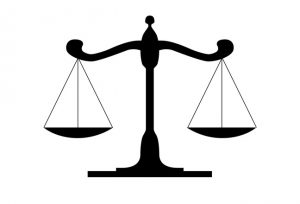 In a recent case – District Attorney for the Northern District v. Superior Court Department – the Supreme Judicial Court affirmed, in whole or in part, “three post-conviction orders, issued by three different Superior Court judges …, requiring that [non-documentary] exhibits in the clerk’s office of the Superior Court in Middlesex County … be transferred to local police departments.”
In a recent case – District Attorney for the Northern District v. Superior Court Department – the Supreme Judicial Court affirmed, in whole or in part, “three post-conviction orders, issued by three different Superior Court judges …, requiring that [non-documentary] exhibits in the clerk’s office of the Superior Court in Middlesex County … be transferred to local police departments.”
The Court also addressed more generally “the vexing issue of the safe storage and preservation of exhibits admitted in evidence in criminal trials, as mandated by G.L. c.278A, §16(a).” At the outset of its discussion, the SJC stated, “The importance of properly storing exhibits cannot be overstated. Without exhibit preservation, innocent people convicted of crimes may linger in prison for decades because they are unable to perform forensic tests through existing or emerging technologies. And with respect to those guilty of criminal offenses whose convictions are overturned or for whom the jury were unable to reach a verdict, the loss of exhibits or the compromising of the chain of custody might prevent re-prosecution.” The [SJC] noted that “[a] hodgepodge of statutes and rules governs the retention in Superior Court cases of non-documentary exhibits…. This framework makes clerks’ offices responsible for exhibits unless a judge orders otherwise.” Of particular importance is “the evidence preservation statute, G.L. c.278A, §16(a), [which] requires governmental entities ‘in possession of evidence or biological material’ related to the investigation of a crime of which someone was convicted to ‘retain such evidence or biological material for the period of time that a person remains in the custody of the commonwealth or under parole or probation supervision in connection with that crime….’ This retention requirement applies to clerks’ offices once an exhibit is admitted in evidence, at which point the evidence is in the clerk’s possession.” “That being said, the retention requirement is not absolute: ‘The evidence or biological material need not be preserved if it is … of such a size, bulk or physical character as to render retention impracticable.’ G.L. c.278A, §16(a).
With these statutes and rules in mind, [the SJC] conclude[d] that Superior Court clerks’ offices are responsible for maintaining exhibits post-trial unless a clerk’s office satisfies a judge that there is good cause to believe retention would be impracticable.” In such a situation, “a judge may order the exhibits transferred…. The good cause standard need not be satisfied in two situations. First, the standard does not apply where exhibits are transferred by agreement, including pursuant to motions for the return of evidence. See G.L. c.278A, §16(a) (evidence need not be preserved ‘if it is to be returned to a third party’); Rule 14 of the Rules of the Superior Court (clerks need not retain for specified length of time exhibits that are ‘sooner delivered to the parties or counsel to whom they … belong or by whom they were … introduced’). And second, the standard does not apply where exhibits are transferred pursuant to statute. Where the good cause standard does apply, it applies to all exhibits that are not covered specifically by statute, including certain firearms and ammunition. This means … that a clerk’s office must satisfy the good cause standard each time it wishes to transfer a firearm or ammunition not covered by statute.” “Unfortunately,” stated the SJC, “most of the court houses in this Commonwealth lack the facilities and trained staff to meet their statutory responsibility [for retention of evidence]…. [W]hat is needed is a state of the art facility staffed by trained professionals with appropriate organizational and retrieval capability and with climate control to preserve adequately forensic and scientific evidence.”
The ability to test non-documentary evidence following a trial can be a crucial piece of post-conviction exoneration. This case is an important step in the right direction to protect defendants’ rights and ability to challenge convictions. If you or a loved one has been convicted after trial, you will need a skilled and experienced lawyer to help you exercise your right to an appeal, including the ability to test or re-test non-documentary evidence admitted at trial. Attorney Daniel Cappetta has extensive experience in both criminal appeals, and motions for a new trial and has successfully helped many clients. Put his experience to use for you and call him today for a free consultation.
 Massachusetts Criminal Lawyer Blog
Massachusetts Criminal Lawyer Blog

